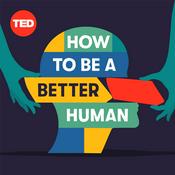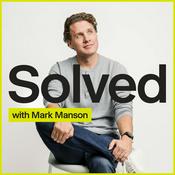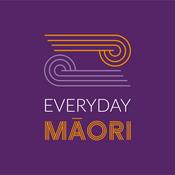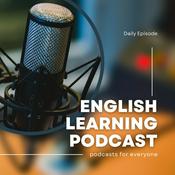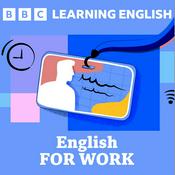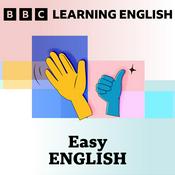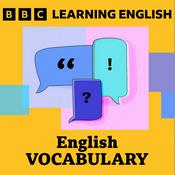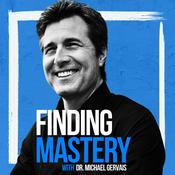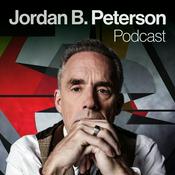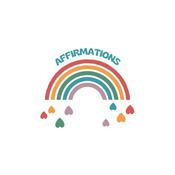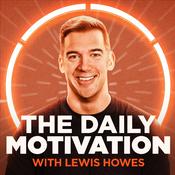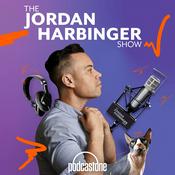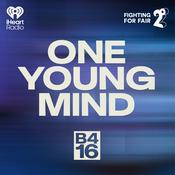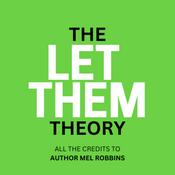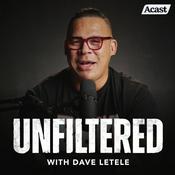353 episodes

Britton Payne: Promoting Authentic Autistic Representation in Pop Culture
11/12/2025 | 28 mins.
This episode, Chris & Rachel interview Britton Payne! Britton Payne is an entertainment attorney who has worked with major studios like Nickelodeon and Warner Bros., and he is also the father of an autistic son. He founded The Autism Scene and created the AUSPEC Awards to promote authentic autistic representation—especially non-speaking AAC users—in children’s animation! Key Ideas This Week: Authentic Autistic Representation in Kids’ Media Matters - Britton emphasizes that autistic and non-speaking characters are vastly underrepresented in children’s animation. Because kids’ pop culture reaches every home and classroom, it has huge potential to model empathy, patience, and inclusion—especially for non-speaking autistic people who use AAC. Representation in media can teach children how to interact respectfully with peers long before adulthood. The Autism Scene and AUSPEC Awards Aim to Change the Industry - Britton founded The Autism Scene and created the AUSPEC Awards, a script competition requiring meaningful interaction with an explicitly autistic character. The competition offers resources, tutorials, sample scripts, and feedback from autism consultants, autistic reviewers, and animation industry leaders. The goal is to help writers create characters that are authentic, non-ableist, and industry-ready—and to make studio executives more comfortable greenlighting shows with autistic characters. Inclusion Requires Patience, Understanding, and High Expectations - Through stories about his friend Alfonso and conversations about AAC, Britton highlights how neurotypical people must learn to wait, listen, and presume competence—especially with non-speaking AAC users. He stresses that autistic people belong in every genre and every part of society. Giving them space and tools to express themselves enriches everyone’s storytelling and understanding of the world. Visit talkingwithtech.org for weekly episodes, transcripts, and resources to help speech-language pathologists, caregivers, and communication partners tailor technology for people with complex communication needs! Join the Talking With Tech Patreon to get exclusive benefits like bonus guest‐interview episodes, behind-the-scenes videos, giveaways, and priority answers to your AAC questions to help you sharpen your skills and confidence in AAC!

Quinn Kelly: Connecting AAC and ASL to Support Deaf & Hard of Hearing Communicators
15/10/2025 | 1h 5 mins.
This week, we share Rachel’s interview with Quinn Kelly! Quinn Kelly is a bilingual speech-language pathologist who specializes in working with children who use both AAC and American Sign Language (ASL). She serves on the AAC committee for the New Jersey Speech and Hearing Association and works with Language First, an organization supporting professionals serving deaf and hard-of-hearing students. In this episode, Quinn shares her expertise on the intersection of AAC and ASL, advocating for culturally sensitive, individualized, and collaborative approaches to communication support. Key Ideas this Week: The Intersection of AAC and ASL Requires Cultural and Clinical Sensitivity – Quinn Kelly emphasizes that not all deaf or hard-of-hearing individuals are ideal candidates for AAC, and decisions must consider cognitive, motor, visual, and cultural factors. Professionals should avoid a one-size-fits-all approach and ensure AAC supports are culturally and linguistically respectful of Deaf identity and ASL as a full language. Collaboration and Family-Centered Decision Making Are Essential – Effective support requires collaboration among SLPs, teachers of the deaf, audiologists, OTs/PTs, and families. Since most families of deaf or hard-of-hearing children have little prior experience with Deaf culture, professionals play a key role in educating and guiding them through complex communication decisions involving sign language, AAC, and spoken modalities. Research and Practical Strategies Can Bridge AAC and ASL – Quinn shares practical tools (e.g., ASL symbol sets, video-based icons, advocacy buttons like “I need an interpreter”) and highlights new research she co-authored showing how AAC and ASL can complement each other. This underscores the growing recognition—supported by ASHA’s updated stance—that ASL is a language, not a form of AAC, and that multimodal communication approaches can empower deaf and hard-of-hearing communicators. Visit talkingwithtech.org for weekly episodes, transcripts, and resources to help speech-language pathologists, caregivers, and communication partners tailor technology for people with complex communication needs! Join the Talking With Tech Patreon to get exclusive benefits like bonus guest‐interview episodes, behind-the-scenes videos, giveaways, and priority answers to your AAC questions to help you sharpen your skills and confidence in AAC!

Brian Whitmer: Measuring Progress and Purpose in the AAC Community
11/10/2025 | 1h 14 mins.
This week, we share Chris's interview with Brian Whitmer! Brian is the founder of the AAC app CoughDrop and Open AAC, a nonprofit organization dedicated to improving the AAC field through collaboration, transparency, and open data initiatives. Whitmer discusses his goal of fostering innovation, sharing community insights, and helping the AAC industry move toward more equitable and effective practices. Key ideas from This Episode: Open AAC’s mission is to improve the AAC field through collaboration and transparency: Whitmer described how Open AAC takes a “bird’s-eye view” of the AAC industry, collecting data from professionals, users, and families to identify trends, challenges, and opportunities for growth — all without being tied to any single product or company . The “State of AAC” survey highlights progress and persistent challenges: The annual Open AAC survey gathers open-ended responses about apps, vocabularies, and practices. Results show that while awareness and resources are growing, issues such as inconsistent education practices, limited partner training, and inequitable funding continue to hinder progress . The new “AAC GPA” aims to measure industry progress and accountability: Open AAC introduced an “AAC GPA” to grade different aspects of the field (education, advocacy, community, openness, etc.). The 2024 average was 1.9 out of 4.0, signaling that while some areas (like family engagement) are improving, education and systemic adoption remain major areas for development. Visit talkingwithtech.org for weekly episodes, transcripts, and resources to help speech-language pathologists, caregivers, and communication partners tailor technology for people with complex communication needs! Join the Talking With Tech Patreon to get exclusive benefits like bonus guest‐interview episodes, behind-the-scenes videos, giveaways, and priority answers to your AAC questions to help you sharpen your skills and confidence in AAC!

Katie Roettele: STEM, AAC, and the Power of "Making" for Inclusion
02/10/2025 | 49 mins.
This week, Chris interviews Katie Roettele! Katie Roettele is an occupational therapist and assistive technology consultant based in Michigan, specializing in AAC and universal design for learning. She is passionate about using STEM and maker tools like Makey Makey and 3D printing to create accessible, hands-on learning experiences and DIY assistive technology! Key Ideas This Week: Early and Consistent AAC Use Matters – Introducing augmentative and alternative communication (AAC) early helps children develop both language and confidence. It’s not about “waiting until they’re ready,” but about giving them tools to communicate right away. Partnership Between Families and Professionals – Successful AAC implementation depends on collaboration. Families bring deep knowledge of their child, while therapists and educators provide strategies and system support. When these perspectives merge, AAC use grows naturally. Focus on Real Communication, Not Just Devices – AAC is about building authentic communication opportunities, not just mastering the buttons on a device. Embedding AAC into daily routines, play, and social interactions fosters meaningful language growth. Visit talkingwithtech.org for weekly episodes, transcripts, and resources to help speech-language pathologists, caregivers, and communication partners tailor technology for people with complex communication needs! Join the Talking With Tech Patreon to get exclusive benefits like bonus guest‐interview episodes, behind-the-scenes videos, giveaways, and priority answers to your AAC questions to help you sharpen your skills and confidence in AAC!

Kayla Ireland: Empowering Total Communication
25/9/2025 | 42 mins.
This week, we share Rachel’s interview with Kayla Ireland! Kayla is a podcaster, college student, AAC User, and advocate who lives with cerebral palsy and epilepsy. She amplifies diverse voices through her shows, shares her personal communication journey, and the value of developing multiple modes of communication! Key Ideas This Week: The power of mindset and belief — Rachel shares how her mother’s cancer journey has shown the importance of optimism, presence, and reframing difficult experiences. She connects this lesson to her professional work, emphasizing that believing in someone’s potential can transform outcomes. Communication is multimodal — Kayla Ireland highlights that AAC is not just about devices. She uses a blend of sign language, fingerspelling, body language, vocalizations, and technology. Her advice is to use total communication and not force a hierarchy of methods. Efficiency and individuality in AAC use — Kayla explains that one or two words can carry the meaning of a full sentence, and sometimes spelling or gestures are faster than devices. She encourages professionals to respect user preferences and contexts rather than strictly focusing on grammar or pre-programmed systems. Visit talkingwithtech.org for weekly episodes, transcripts, and resources to help speech-language pathologists, caregivers, and communication partners tailor technology for people with complex communication needs! Join the Talking With Tech Patreon to get exclusive benefits like bonus guest‐interview episodes, behind-the-scenes videos, giveaways, and priority answers to your AAC questions to help you sharpen your skills and confidence in AAC!
More Education podcasts
Trending Education podcasts
About Talking With Tech AAC Podcast
Listen to Talking With Tech AAC Podcast, The Daily Stoic and many other podcasts from around the world with the radio.net app
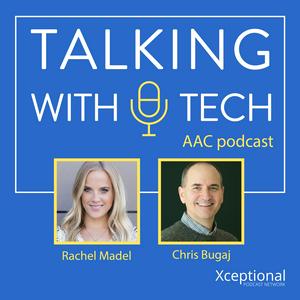
Get the free radio.net app
- Stations and podcasts to bookmark
- Stream via Wi-Fi or Bluetooth
- Supports Carplay & Android Auto
- Many other app features
Get the free radio.net app
- Stations and podcasts to bookmark
- Stream via Wi-Fi or Bluetooth
- Supports Carplay & Android Auto
- Many other app features


Talking With Tech AAC Podcast
download the app,
start listening.

